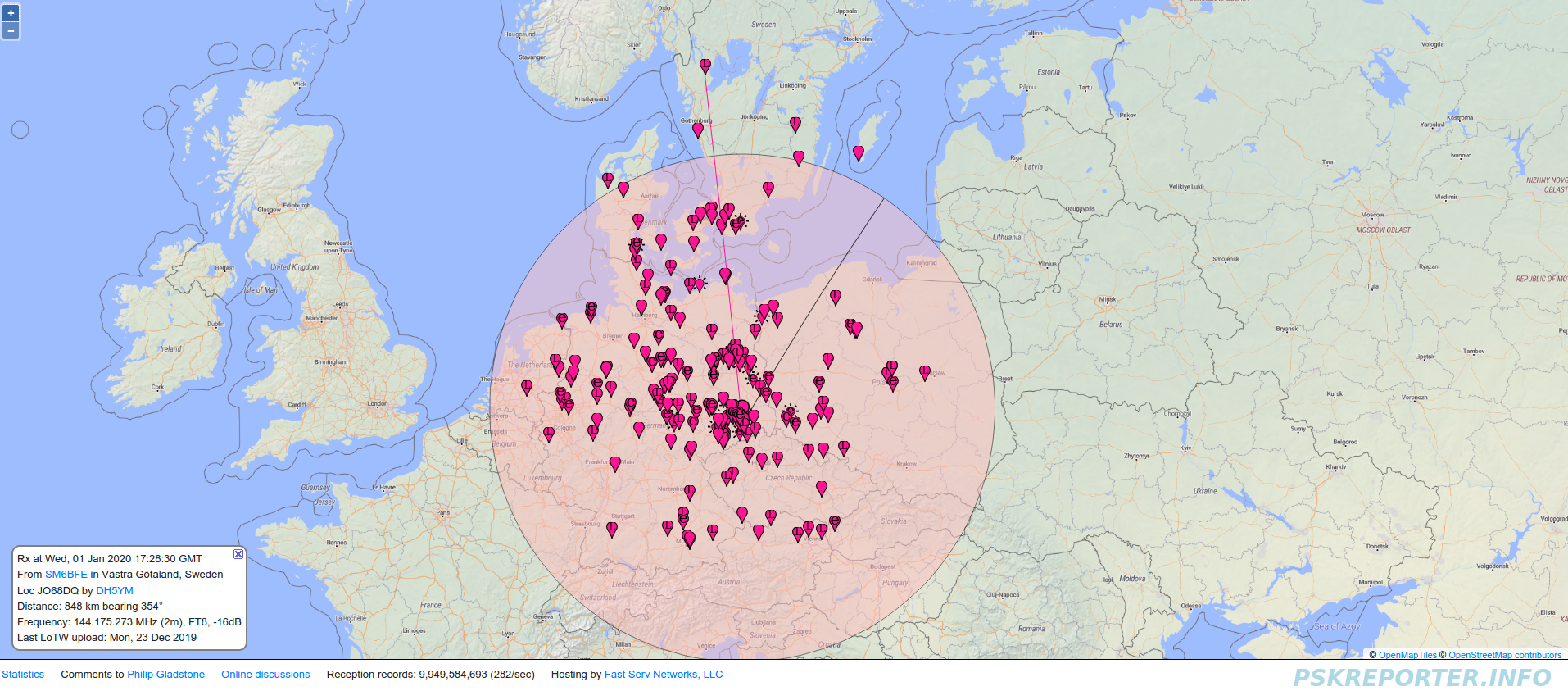Originally planned some more QSO but in the end there where more time constraints than expected. Therefore only 21 QSO on 23cm sunday morning. I skipped all other bands. 70cm was not ready anyway. ODX HA5KDQ with >500km.
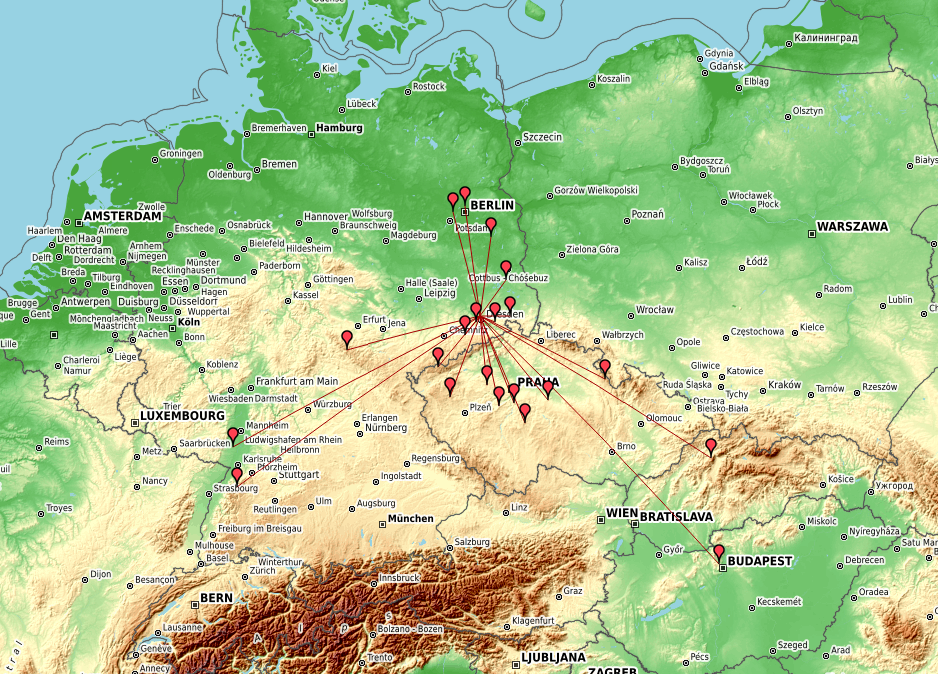

Originally planned some more QSO but in the end there where more time constraints than expected. Therefore only 21 QSO on 23cm sunday morning. I skipped all other bands. 70cm was not ready anyway. ODX HA5KDQ with >500km.

I planned to make some QSO from home. In the end i had about 10h of participation mainly during the night and sunday morning. The setup was 4ele and 200W with my HiQSDR and ME2HT transverter. The raw result shows 95QSO with highlights YT4B in CW random and IQ5NN even in SSB via aircraft scatter. 7S7V and 5P5T had pretty strong signals here.
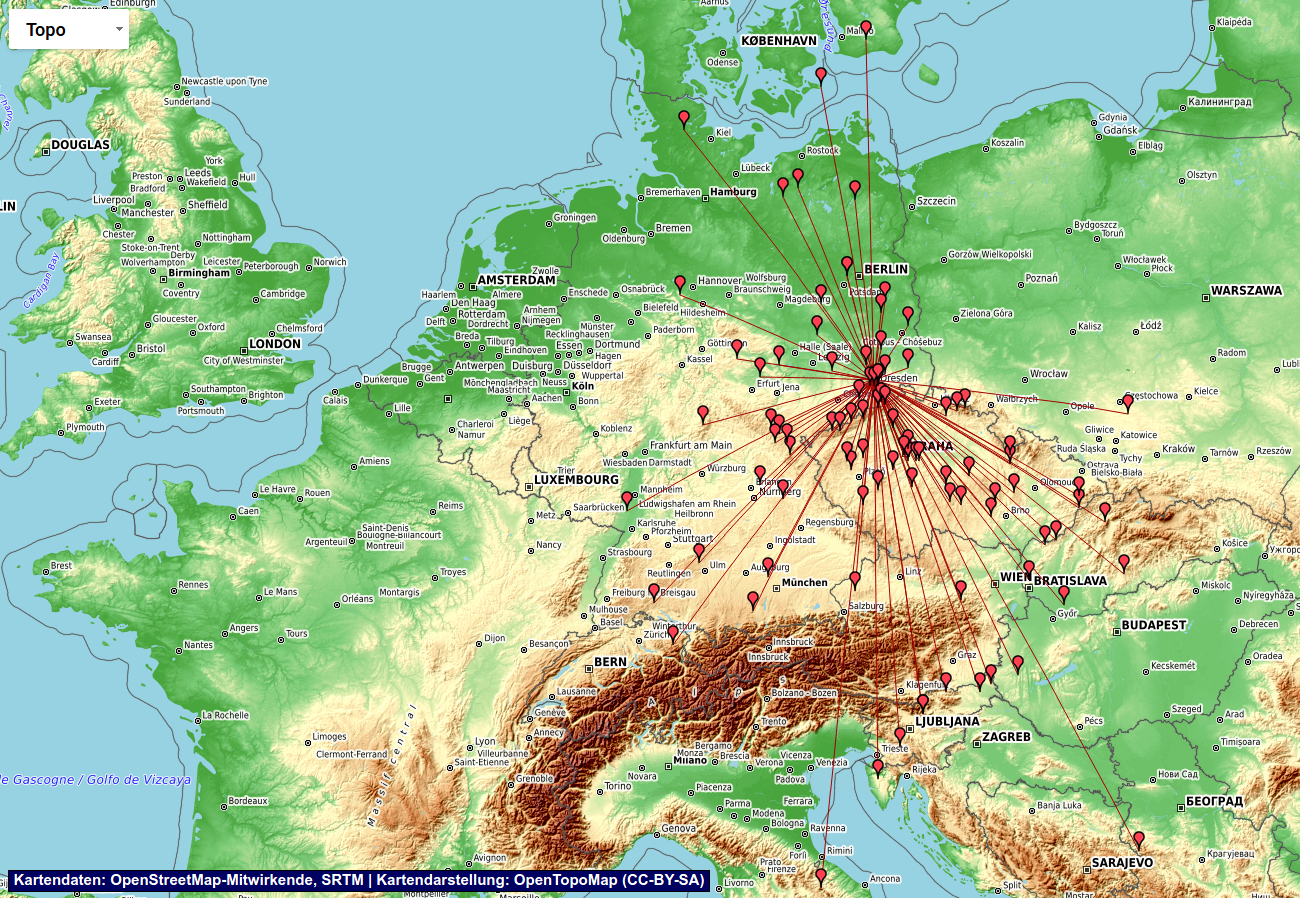
This weekend i did some new trials with QO-100. In the picture you can see parts of setup i used. This time the TX setup was purely classic. You can see it in the grey box in the foto below. FT-817 on 2m as IF followed by an upconverter made from some old UMTS measurement equipment block (silver box in the middle). It does dual upconversion with high-side LO. The LO consist of an ADF4351 each (the two smaller boards above the converter). The reference is a 96MHz OCXO of G8ACE design (left of the PLL boards). The converter block generates up to 200mW on 2.4GHz. I drive a WLAN PA (black box) that probably generates 1W. And the final PA is a MRF21030 PA (on the big heat sink on the right). It provides about 10W in SSB. The antenna is my 60cm offset dish with the DJ7GP patch (the one that has the round patch element). Left to the grey TX dish you can see a black 40cm camping dish with Octagon LNB and TCXO modification. But instead i used the BATC websdr this time. The reason is the amount of cable i currently have. I use 3 power supplies (28V, 13.8V, 5V). Reducing the number of required cables is one of the next steps. However i was pleased to do some nice QSO.
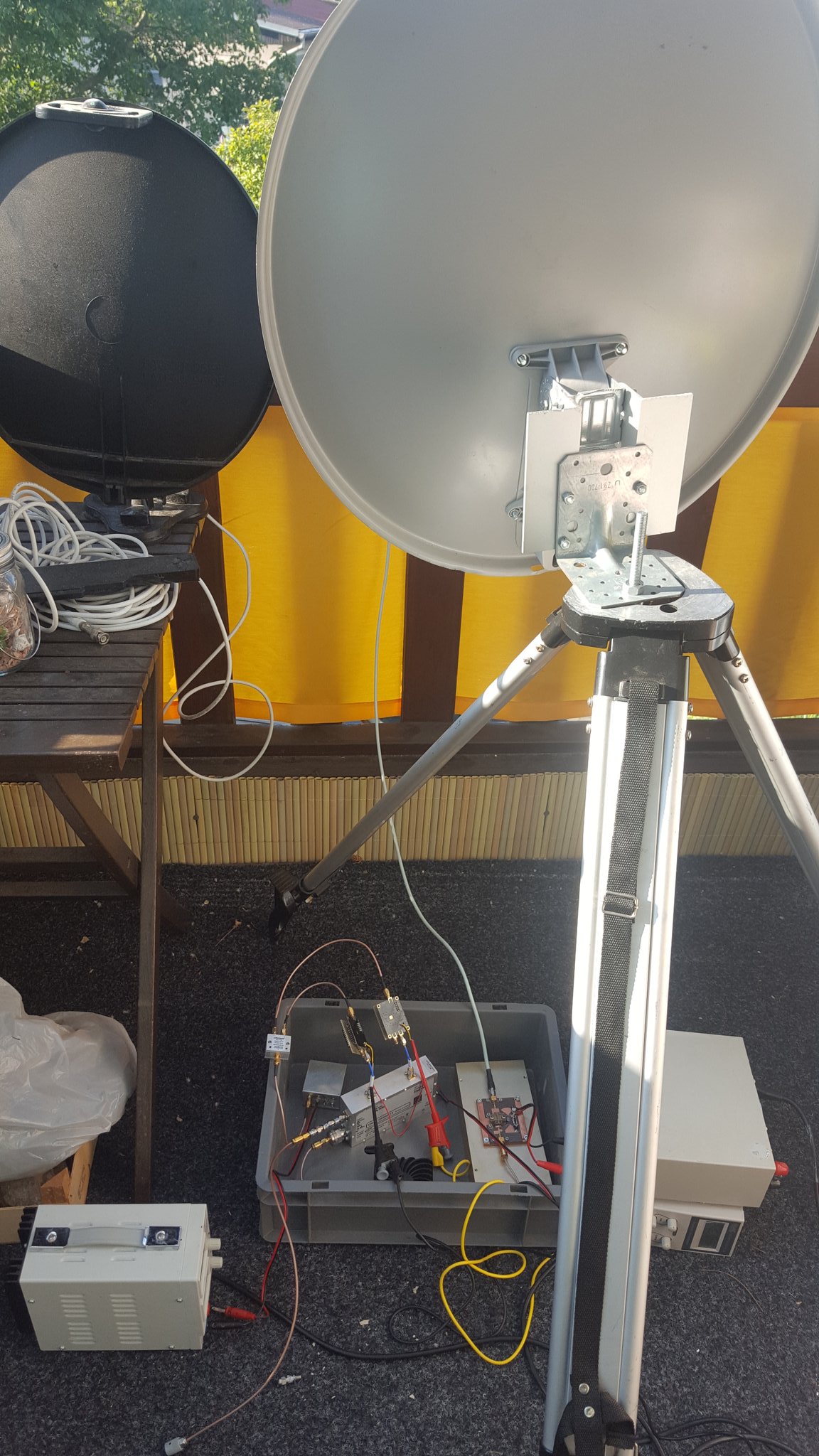
Since quite some while there are 5.7GHz PAs intended for video transmission from drones to ground. Those PA are made with 5GHz WLAN IC and very cheap (below 30Euro including shippment). These PA can be used for 6cm amateur radion but need some modification upfront to generate a usable amplifier.
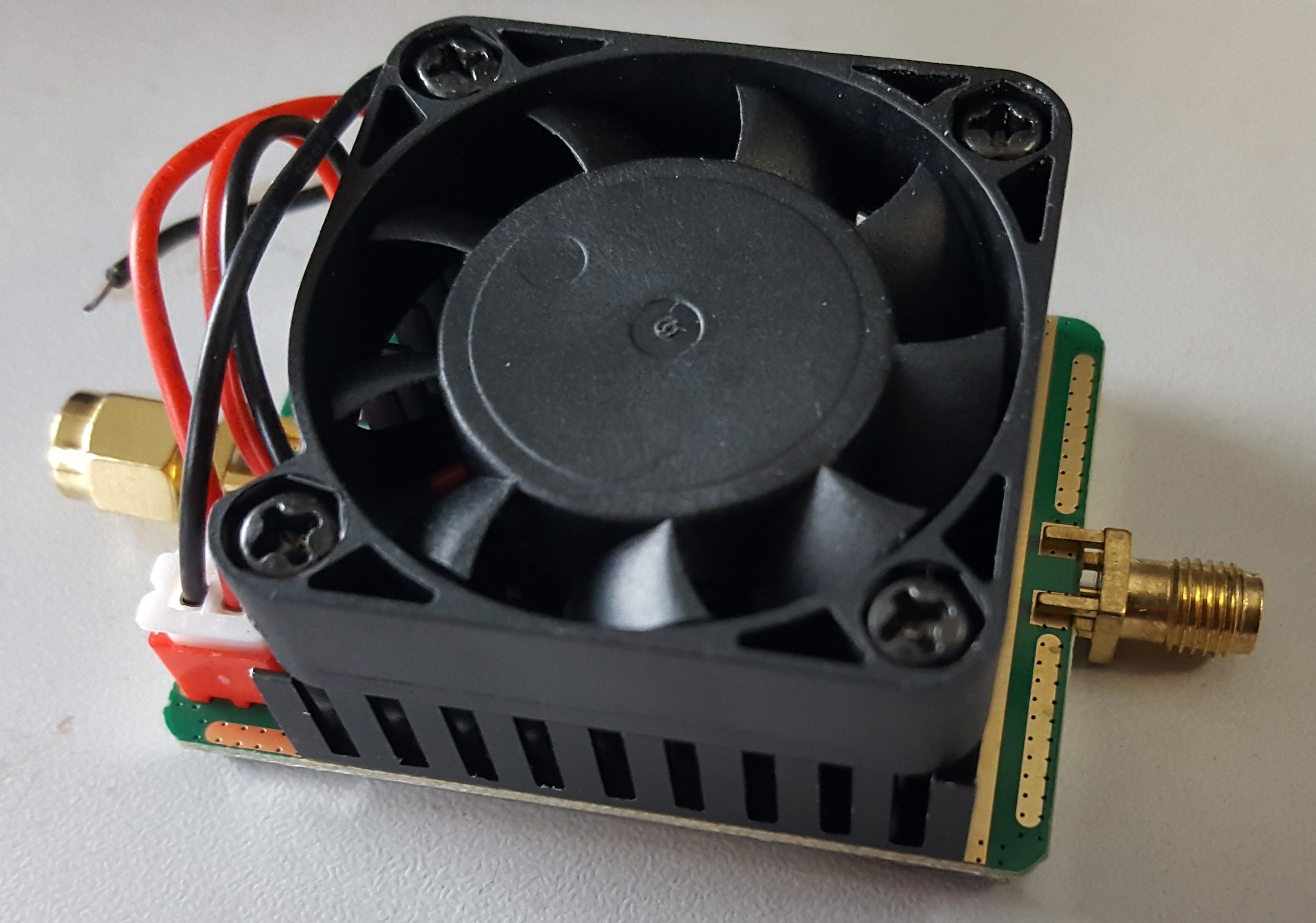
The PA comes with heatsink, small fan and a short power cable.
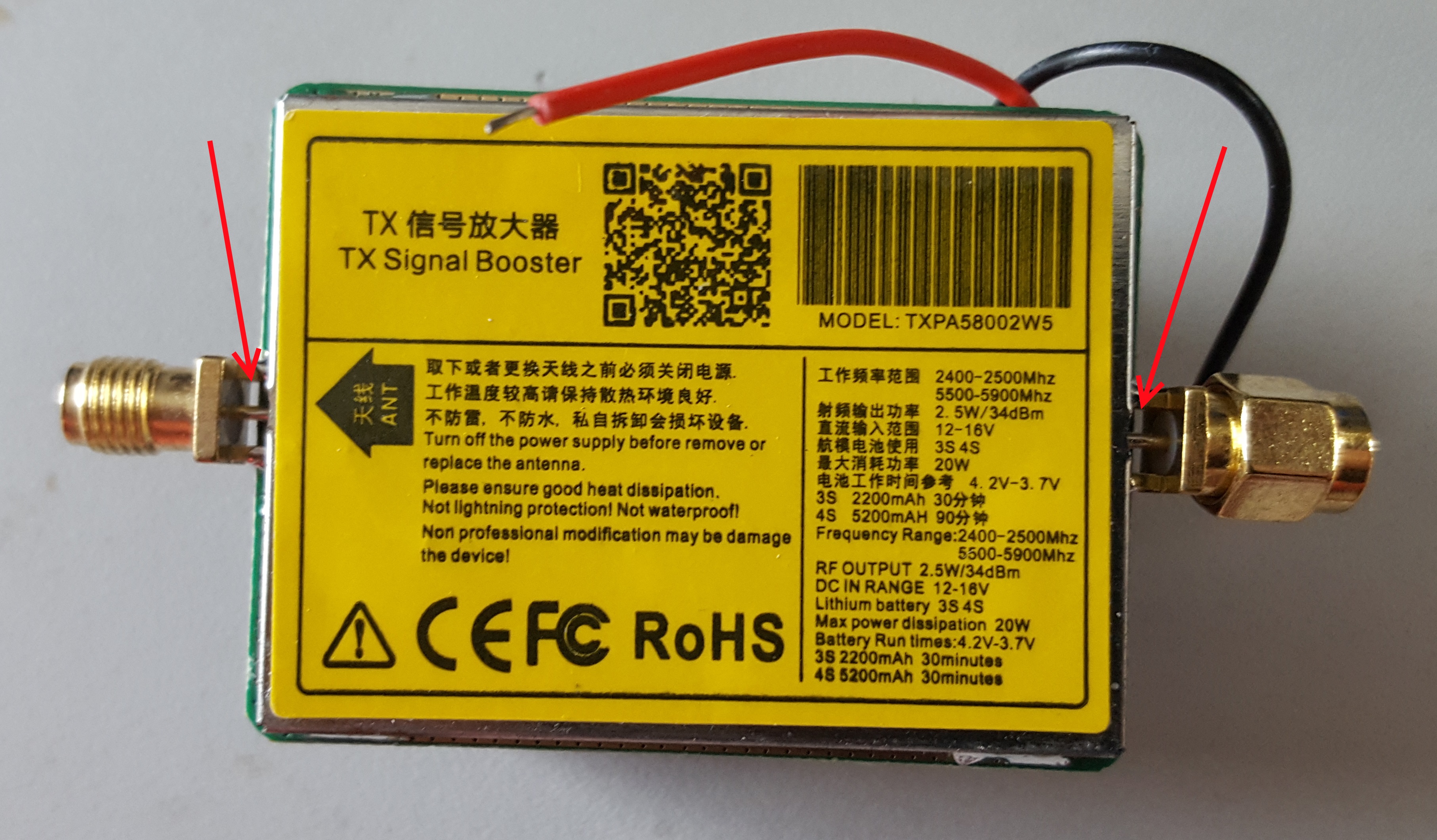
The PCB side has a metal cover that has a sticker with some technical data. The PA is supplied with 12-16V. It is intended for 5.7GHz operation. The sticker also mentions 2.4GHz but the PA will not work there. The specified output power is 2.5..3W although the vendors usually state 5W. You will not reach 5W.
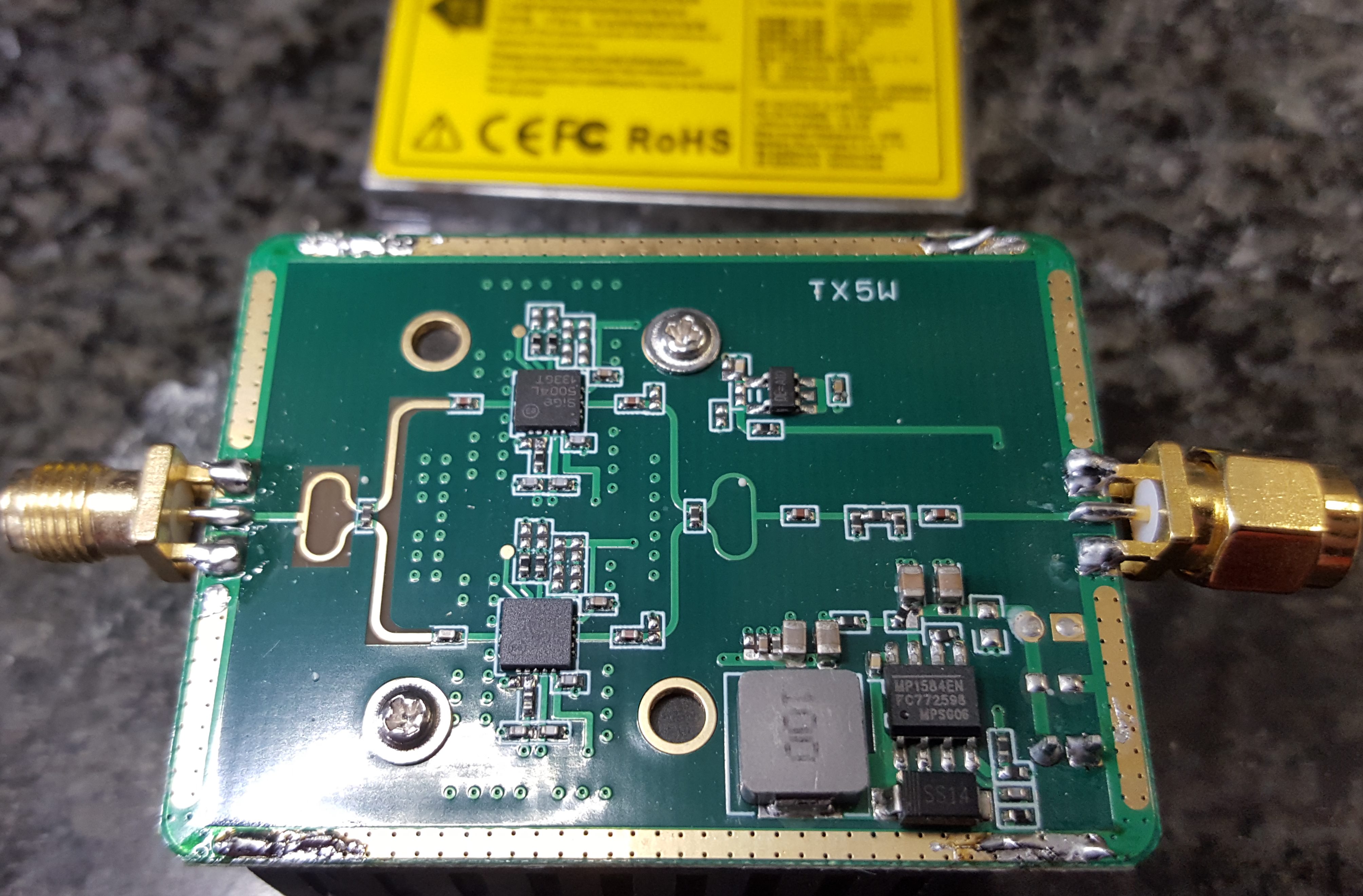
Removing the metal cover shows that the PA PCB contains two Sige 5004L WLAN amplifier IC, some splitter/combiner, an input attenuator and a power supply circuit. The connectors are Reverse SMA (RSMA) and they are mounted really poor. I would not even try to use the PA with those connectors and the air gaps to the PCB.
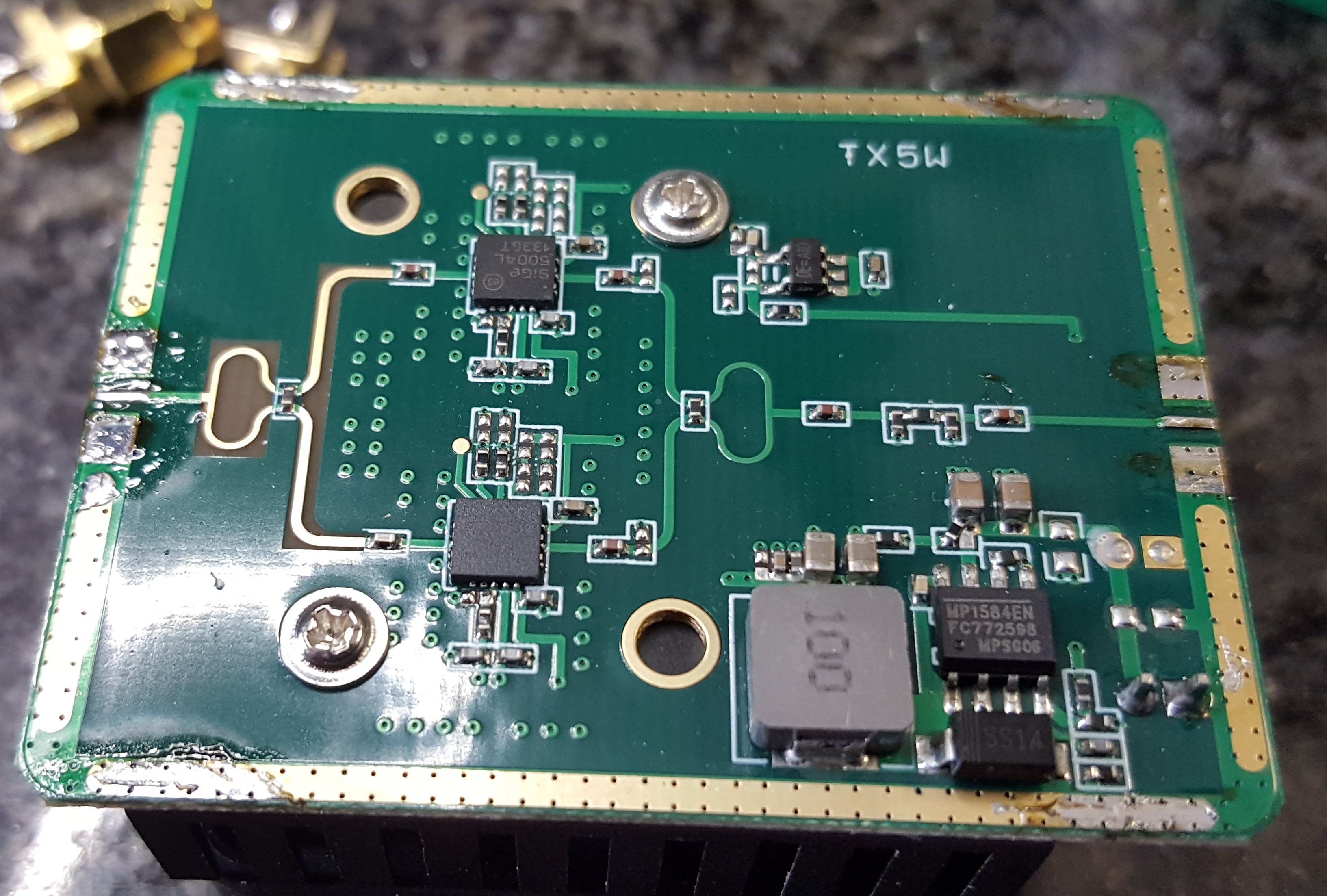
Now the silly RSMA connectors are removed. The pads need to be cleaned. Also clean the ground ring to prepare re-assembly of the shield later on.
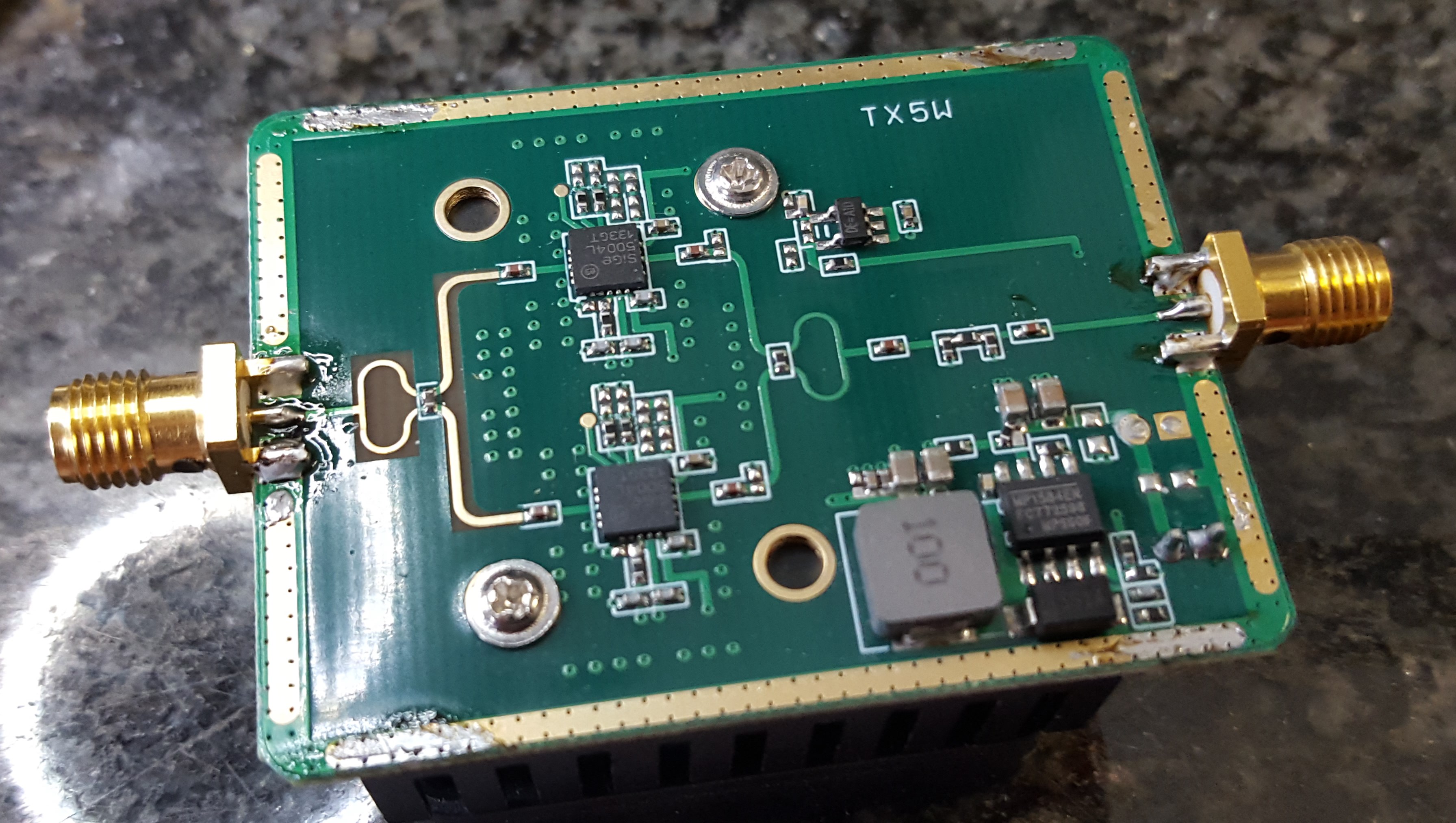
Solder some new SMA connectors. The grounds of the SMA connectors shall touch the top side of the PCB. You need to shorten the ground connectors a little bit. Likely you do not have connectors intended for the PCB thickness. You may solder the other side for mechanical reason. Solder the inner pin of the SMA last in order to prevent breaking the RF trace.
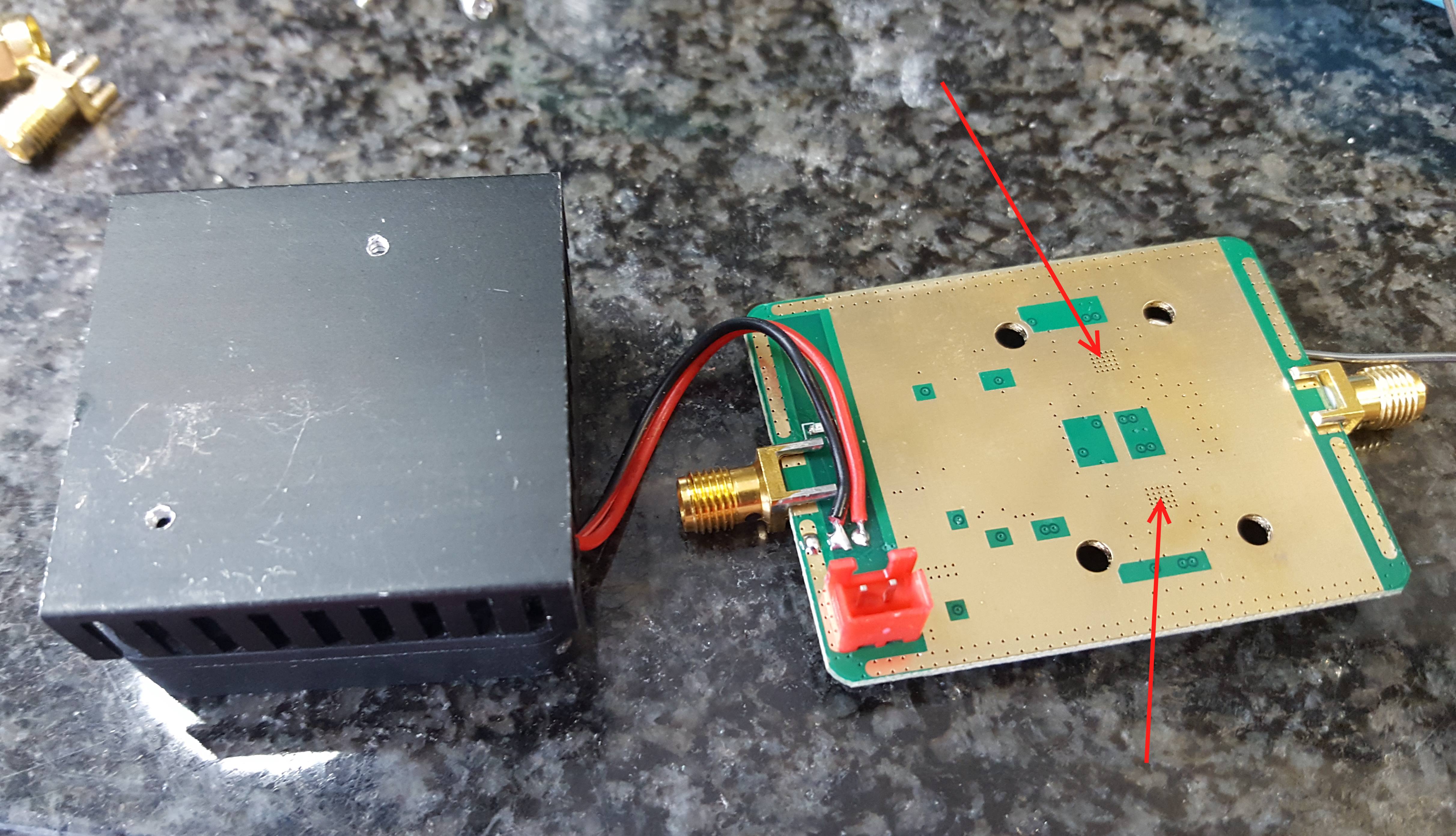
Some attention needs to be put on the thermal conductivity between PCB and heat sink. Removing the PCB from the heat sink shows that cost optimizations safed the thermal compount which makes the heat sink almost useless. So add some thermal paste to the marked areas below the amplifier IC. Probably the switcher IC needs some cooling as well.
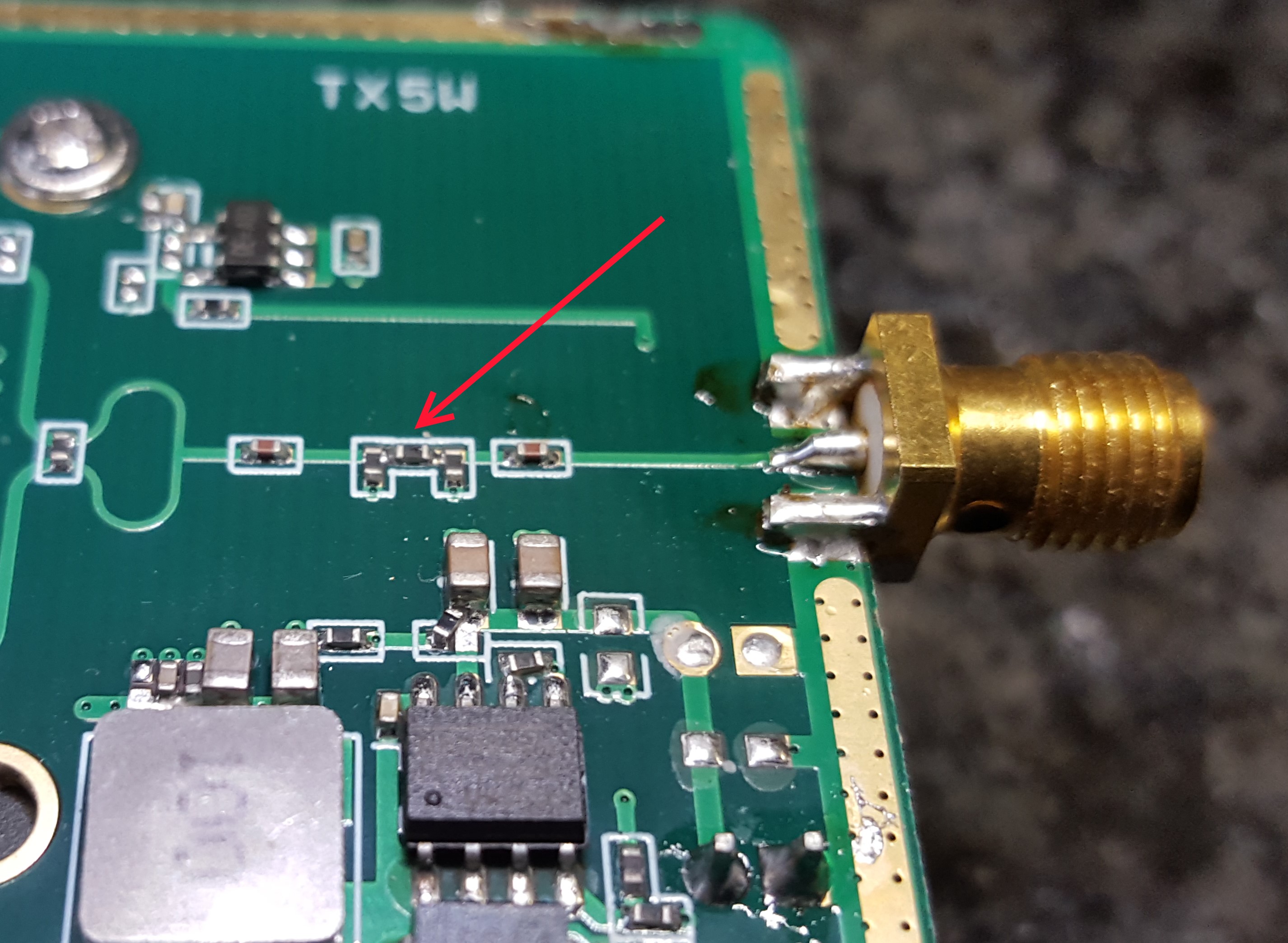
The PA PCB contains a input attenuator. The default attenuation is around 18 to 20dB. If you have less input power you might want to change it. For my measurements i removed the 3 resistors and soldered a 0-Ohm upside down to the middle resistor position. After everything is modified and tested you will likely want to re-assemble the metal shield.
The PA has about 27-28dB gain and my sample achieves 3W output at 7dBm (5mW) input and a current of 1.3A at 12V. Saturation might be somewhere at 4W with 10mW of drive and 1.5A current.
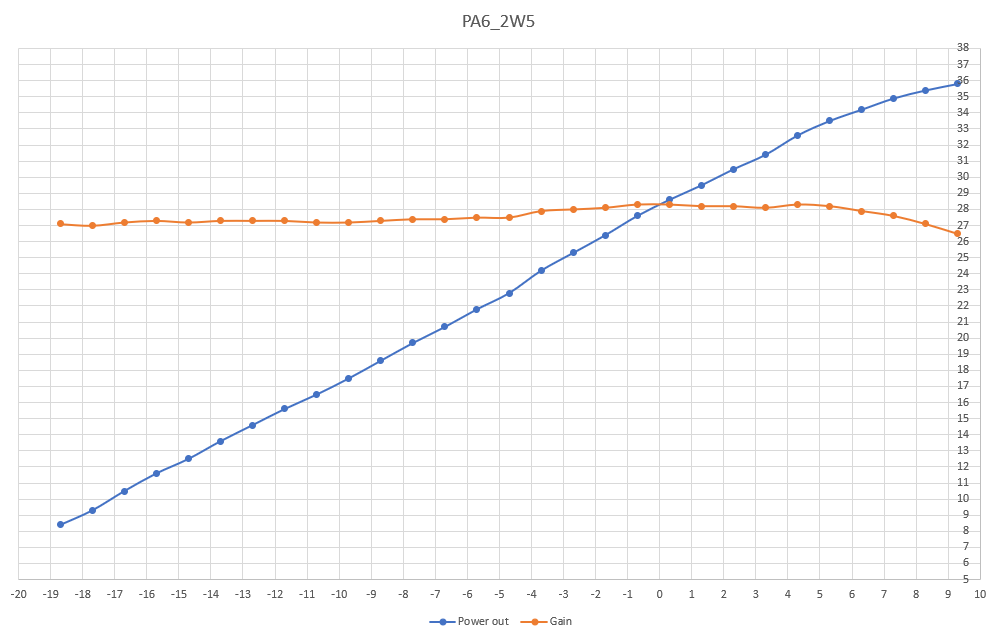
I tried my new 36ele yagi in 23cm NAC. 4 nice QSO. SM6VTZ (820km) via AP scatter, SM7DTE, SK7MW and DF0MU via tropo. Really strong signal from SK7MW.
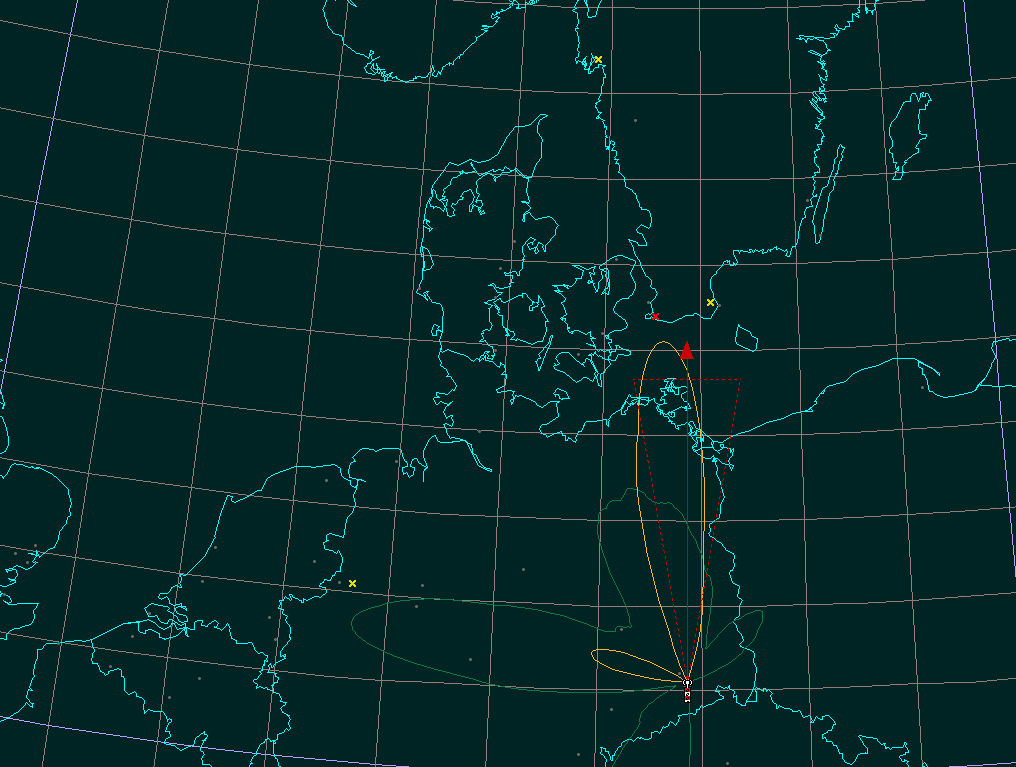
I was working the contest from home and part time. The 23cm transverter with 10m IF and the HiQSDR work pretty well. I used the Quados4 antenna since the 36ele ordered was still stuck in customs. ODX was HA5KDQ and in total 41QSO and 6900 points raw score. I also made some QSO on the higher bands on request. 3x 9cm, 1x 6 and 3cm each.
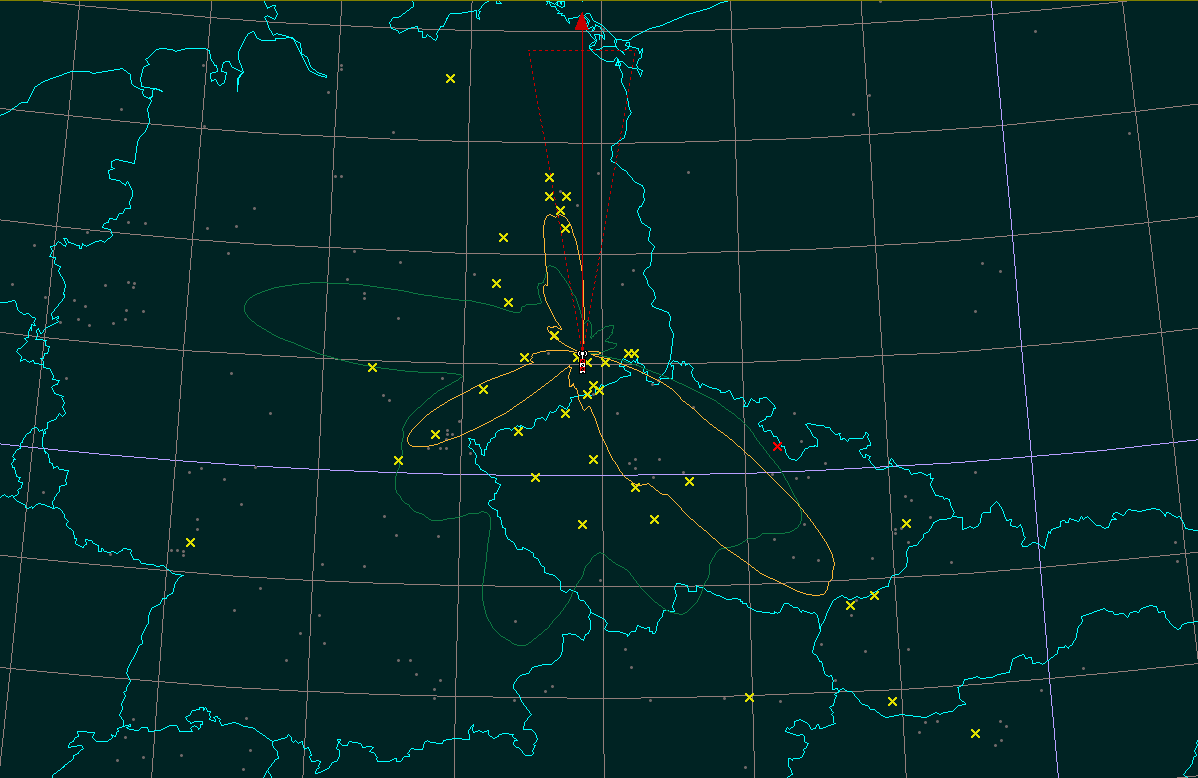
After missing the big 2m ES last friday i had some luck on 4m today. Among others i worked GM4VVX, EA6FB, OH1KH, PA3FMP, GW8ASA, GU6EFB, EI8IQ and OY1OF.
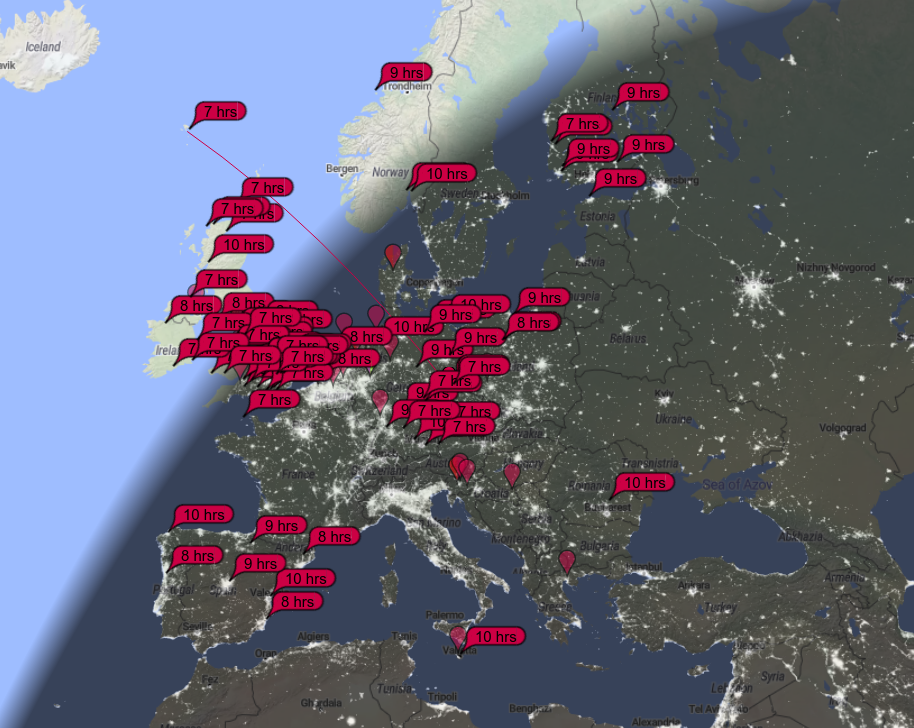
Today there was some good ES on the VHF bands. I managed to do some QSO. The FT8 monitor received quite an amount of stations. MUF moved >200MHz and there were some spots of stations from EA/CT… I did not receive anything on 2m.
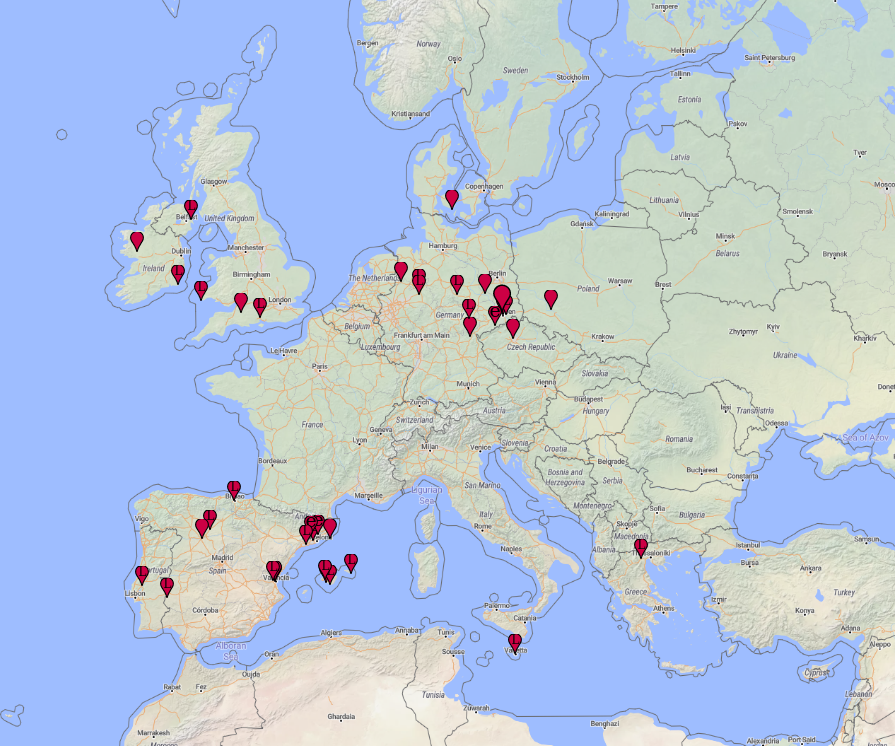
worked stations: EA6XQ, EA3WD, EA5DF, EA6SX, OK1AGE, DL6AKK, CT1BXT, EA5TT
There was some SSB traffic as well. I did not have time to try. Some SSB stations call above .200 and cannot be answered anyway by DL stations.
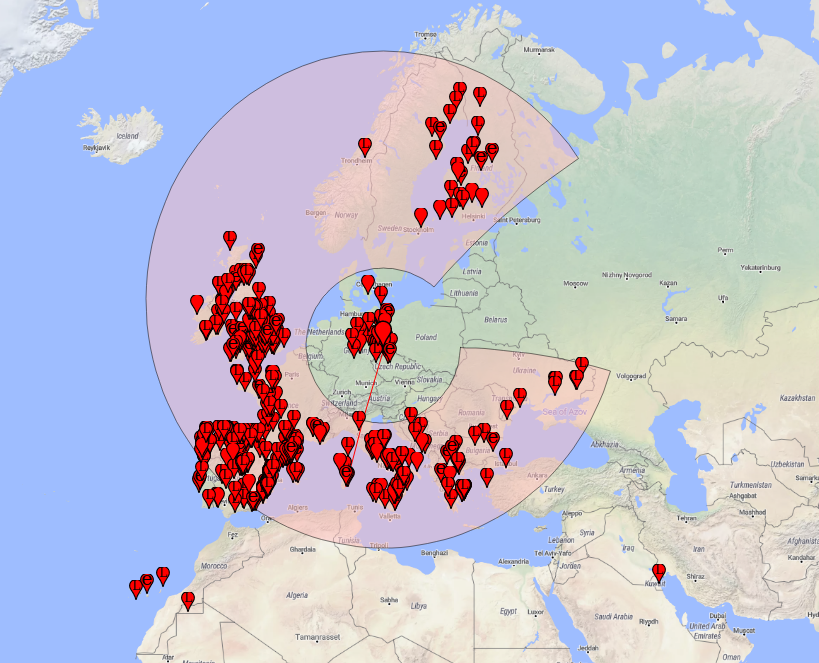
Last weekend i tried to put my new 23cm transverter with 28MHz IF and the 100W PE1RKI PA together. The picture shows my ugly “transverter in a box” construction.
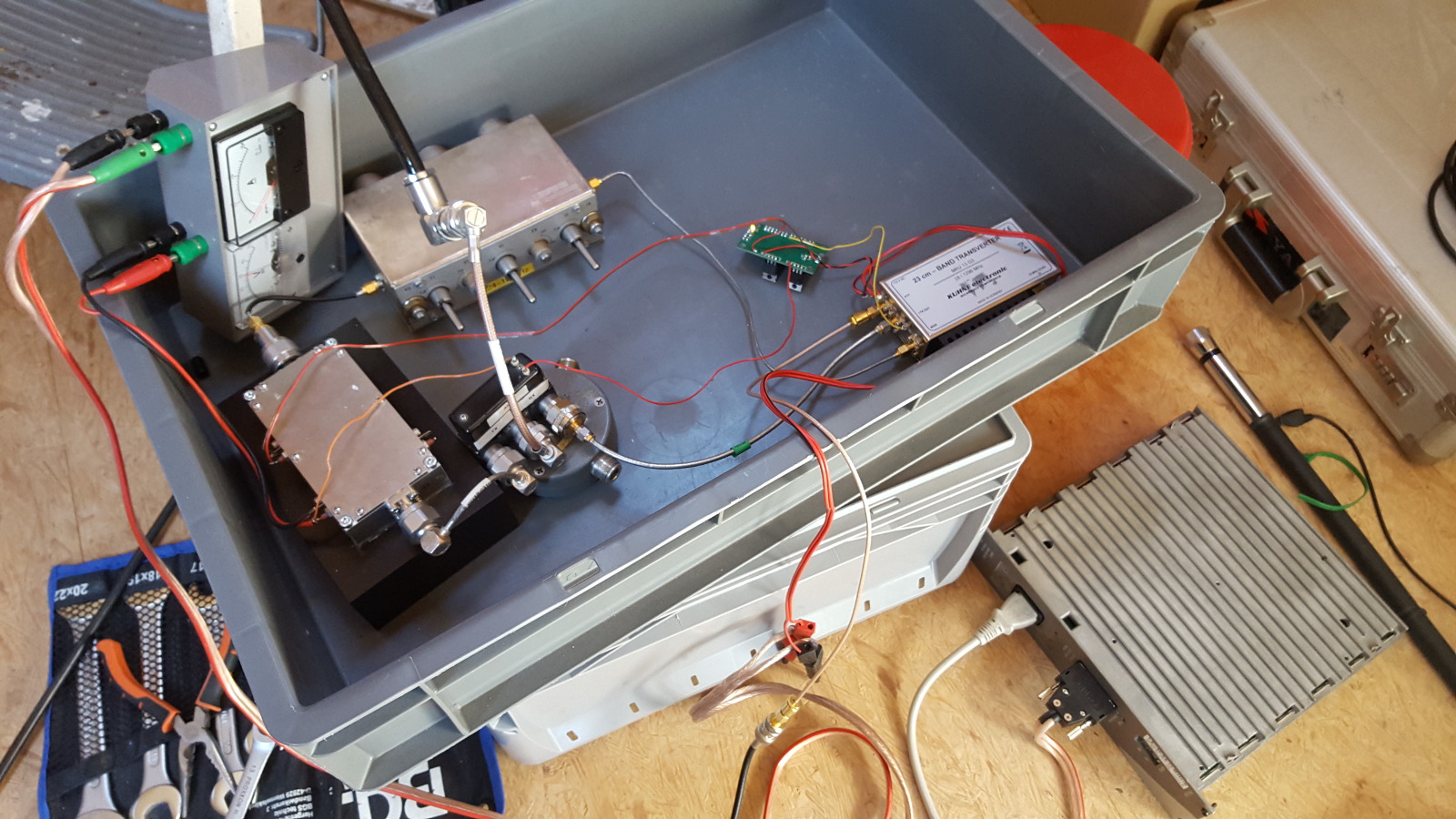
I used this setup in the March 23cm DUR contest. My ODX was HA5YA via aircraft scatter about 550km distance. I also worked DL3IAE and OM5CM, both >400km.
Last days we have strong tropo conditions. Currently i run a Openwebrx with FT8 monitor on 2m and although i only use a small vertical monopole the maximum distance of reports are >800km. Some 2m FM relais from Hamburg was audible very loud. The 70cm band was full of repeaters (i think most of the signals were DMR). This evening i gave 70cm a try. I was surprised to hear LA1UHG beacon from JO59FB (>900km). Other beacons heard: DB0VC (JO45), OZ7IGY, OZ5SHF, DM0UB. I worked SM7LCD in JO86 over 600km with only 30W and Quados-6 antenna.
Below you find a recording of the LA1UHG beacon:
http://dh5ym.hopto.org/wiki/wp-content/uploads/2020/01/LA1UHG_JO59FB_23cm_20200101.aac
